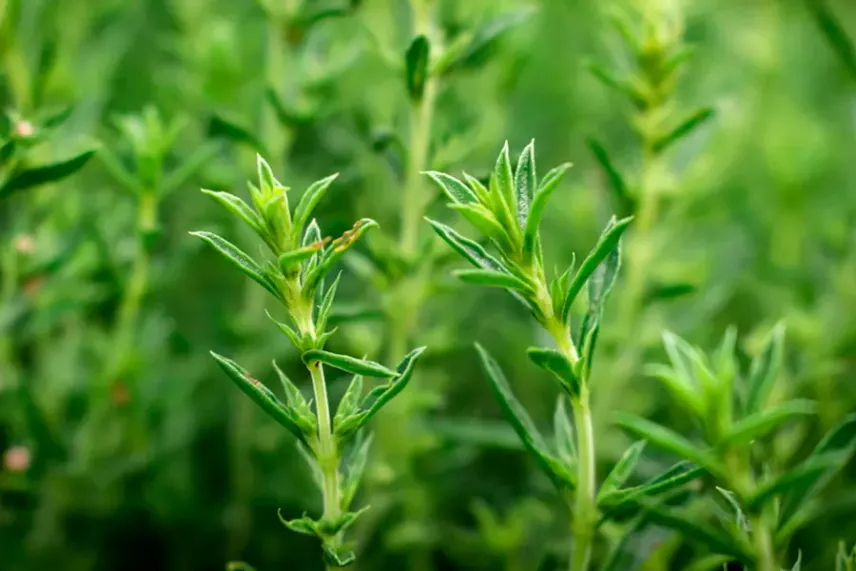
Savory Spice
Savory is a fairly ancient spice, the history of its use originates from the Mediterranean. However, there are references to savory in Europe and Asia. The ancient Greeks knew about the medicinal properties of savory. The ancient Romans wore wreaths of savory and used it for flavoring. The assimilation of savory in Europe was due to the fact that savory is similar in taste to black pepper and could always replace it as a cheaper and more affordable analogue. Savory is an annual plant, no more than 50 cm tall, which grows in the expanses of Europe and Asia. Young shoots are used in cooking.
The Use of Savory in Cooking
Savory spice - has a bitter and spicy taste. In cooking, it is used in many salads. Meat and fish recipes also provide for the entry of savory into their composition. The flavoring of various canned food, marinades, sauces from the use of savory only becomes richer. It is possible to use savory in sausages and cheeses. Various kinds of recipes for pies and pizzas are known for including savory in their composition. As for vinegar, savory is used to flavor it, and vegetable oil can also be infused on savory.
The taste qualities of savory go well with many types of other herbs. Such spices can be: fennel, rosemary, parsley, dill, red and black pepper, etc. A feature of savory is that during heat treatment, savory must be added at the end, otherwise it will give the dish an unpleasant bitterness. The use of savory can occur both in dried and fresh form. In fresh form, the use of savory in salads is typical. In Germany and Holland, savory is added to bean dishes. In this situation, it is important in that it demonstrates not only good taste, but also negates the consequences of eating legumes.
The Benefits and Harms of Savory
The scope of savory in the field of medicine is unlimited. Ever since the Renaissance, savory has been known as a pain reliever. To date, savory is known as a universal remedy for various pathologies in the intestines, such as flatulence, spasms, and constipation. This spice can also be used as tea. In general, savory significantly increases appetite, has an antihelminthic effect. In case of a cold, savory has a diaphoretic effect, and also favorably eliminates cough.
With the exception of many useful properties, savory has a number of contraindications. People with acute kidney and liver diseases are not recommended to use savory. During pregnancy, savory is strictly prohibited, as it can provoke a miscarriage. In other cases, contraindications to the use of savory may be individual intolerance, atherosclerosis, thyroid disease.
Growing and Using Savory
If necessary, savory can be grown at their summer cottage. This spice is not whimsical in courtship and frost-resistant. The only nuances can be - small seeds of savory and regular maintenance of moisture in the soil. The quality of such a spice as savory is due to the grand scope of its application. Dishes of different tastes, as well as different ways of cooking, can be supplemented with thyme. The health effects of savory are also invaluable.